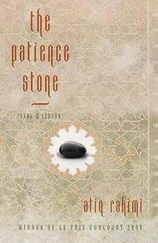“In that case I too will remind you of something: I am the Qhazi here. And I decree that this man’s hands be cut off.” The clerk passes a sheet of paper and a pen to the judge. “In that case I ask you, Qhazi sahib, to be so good as to write this down in your own hand.”
“You too are disobeying me? And, what is more, treating me without respect?”
“Far be it from me to have the slightest disrespectful thought, most venerable Qhazi sahib. I merely fear that, the day when you are no longer here—may Allah keep you safe and sound in this world—I could possibly be accused of having written a decree that goes against sharia.”
“Goes against sharia? My decree goes against sharia? Get out! Gather your things and get the hell out of here, as quick as a bullet!”
The clerk wishes to speak, but the judge signals the guard to throw him out. The old man takes the opportunity to sink to his knees and beg the Qhazi, who immediately interrupts him: “Shut up, shut up! It is not recommended to make judgments in anger.” Then, to one of the guards: “Put him back in prison, and bring him here tomorrow!”
The guard takes the old man out, and the caretaker follows. Rassoul remains where he is.
“Have you brought the jewels?” asks the judge. Rassoul approaches slowly and says, “No.”
“What do you mean, no! Why did you leave prison, then?”
“Because they told me that there was nothing here for me anymore.”
“Who?” yells the judge, before calling the guard and ordering him to return Rassoul to prison. “Solitary confinement! And tomorrow, send him for amputation, and then hanging!”
BEHIND THE bars, daybreak appears, silent and uncertain. As the muezzins call the faithful to prayer, as the guns of vengeance awake, as Sophia lies in bed embracing her innocence, as Razmodin saves the family honor at Mazar-e Sharif… Rassoul forgets the world that has abandoned him. He is sitting in a corner of his cell. Waiting for no one. Nothing. He decides he will be mute again, and also deaf.
Yes. I no longer hear. I no longer speak.
We are not capable of speech,
If we could only listen!
Everything must be said!
Everything must be heard!
And yet
Our ears are sealed
Our lips are sealed
Our hearts are sealed.
He must write this poem down here, in this cell, on this wall. He searches the floor for a pebble or a scrap of wood. There is nothing. He’ll have to use his nails, then. He starts scratching the words onto the flaking paint. It is hard. It hurts. He presses down. He bleeds. He keeps writing. He writes until footsteps approach and then stop outside his cell, until keys jangle in the corridor, until the door opens, and a harsh voice shouts: “Out!” At that point he stops writing and stands still, impassive, his eyes glued to the words.
Two armed men enter his cell, grab him by the arms and lift him up. They drag him silently to the courtroom. A great hubbub can be heard from behind the door: “Murderer,” “communist,” “money,” “vengeance”… The same words he has heard a thousand times; words that used to frighten or amuse him, but today simply make him deaf. He no longer hears them.
The door is opened.
Rassoul walks in.
The room falls quiet.
Everyone is there, sitting on wooden chairs, filling up the room. All bearded, all wearing black or white turbans or charmah, qaraqol and pakol caps. All looking at Rassoul. He is calm. His gaze sweeps the room and comes to rest on Farzan, serving tea with his usual sad smile. Parwaiz is there, too, sitting alone in a corner, his expression gloomy, anxious, and upset, his eyes glued to the ground. Amer Salam sits next to the Qhazi, his chest puffed out. His fleshy hands rest on a stick as he recites his prayer beads. He stares down at Rassoul and waggles his head—impossible to tell whether he is saying “Here we are at last!” or praying.
The Qhazi gulps his tea; the other men copy him, noisily. Farzan leaves the room with a final, even more tragic glance at Rassoul. The Qhazi puts down his glass and signals to a new clerk sitting beside him that the trial may begin. The clerk stands up, closes his eyes, and recites a sura from the Koran. Once the sura is finished, the Qhazi asks Rassoul to move up to the bar.
“Introduce yourself!” Rassoul glances anxiously at Parwaiz and remains silent. The judge grows impatient: “I’m telling you to introduce yourself!” Silence. Parwaiz stands up.
“The boy is sick… he has lost his voice.”
The Qhazi grows annoyed: “What do you mean, lost his voice? He was fine yesterday. And today he cannot speak!” Addressing the courtroom, “Muslim brothers, thanks to our jihad we overcame communism.” Everyone immediately intones “Allah-o Akbar” three times. The Qhazi continues, “But survivors from that regime, ungodly people, are still active among our Muslim population today, committing crimes and disseminating evil. The individual you see before you is one such. Just a few days ago he savagely murdered a defenseless widow in order to steal her money and her jewels. Fortunately, he was arrested by those in charge of security for our mujahideen government, under the orders of our brother Commandant Parwaiz, here today.”
Parwaiz is surprised; he tries anxiously to meet Rassoul’s eye, but Rassoul keeps staring stubbornly at the ground. Just as Parwaiz moves forward to speak, the Qhazi signals the clerk to recite another sura from the Koran. Everyone falls silent. At the end of the recital, the Qhazi continues: “Did the accused understand the meaning of this thirty-third verse of the sura?” Rassoul stares at him without replying. “Instead of learning Russian you should have learnt the language of Allah, you irreligious man! God said: Indeed, the penalty for those who wage war against Allah and His Messenger and spread corruption on earth is none but that they be killed or crucified or that their hands and feet be cut off from opposite sides or that they be exiled from the land.”
The men shout themselves hoarse chanting “Allah-o Akbar!” three more times. The judge takes a gulp of tea. “Rassoul, son of… What was your father’s name?” He waits in vain, then: “Never mind. Rassoul, son of—, of adult age and sound mind, admits to having murdered a widow on 16 assad 1372 of the solar Hejri, and stolen her money and her jewels. The court thus finds him guilty of theft and murder, and according to Islamic sharia accords him the supreme punishment, namely amputation followed by hanging…”
As the men once again shout three times, “Allah-o Akbar!” a single voice protests: “This is not right!” In response, other cries fill the room: “It is right!”; “It is sharia!”; “It is deserved, deserved!”; “Therefore it is right!”… The protester tries to make himself heard: “Cutting off his hands is right, yes…” He recites a verse of the Koran, which quiets the room, and then continues: “Qhazi sahib, today, as you have said, thanks to Allah…”—the room intones: “Allah-o Akbar…”—the man continues… “our country is ruled according to sharia law, which is the very essence of our Islamic State. You would like us to follow that law? In that case, everything must be strictly based on fiqh . To start with, this man has lost his voice…”
“But this fitna does have a voice, he is just pretending,” says the Qhazi, before saying to the guards: “Yesterday, this fitna was speaking. You were there.”
“Yes, Qhazi sahib. We bear witness that this fitna was speaking perfectly.”
The Qhazi turns toward the man and instructs him: “So beware of falling prey to his tricks. Continue!”
Читать дальше












